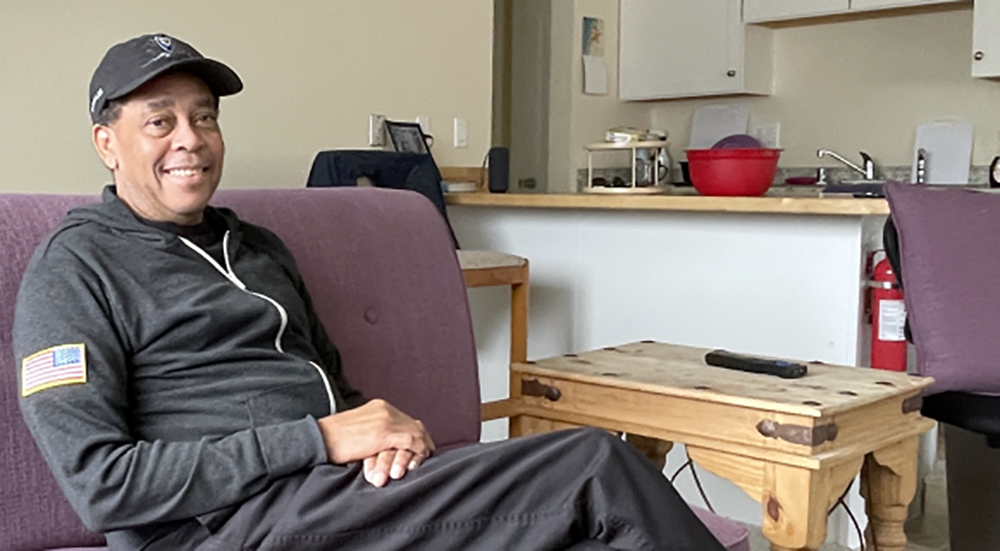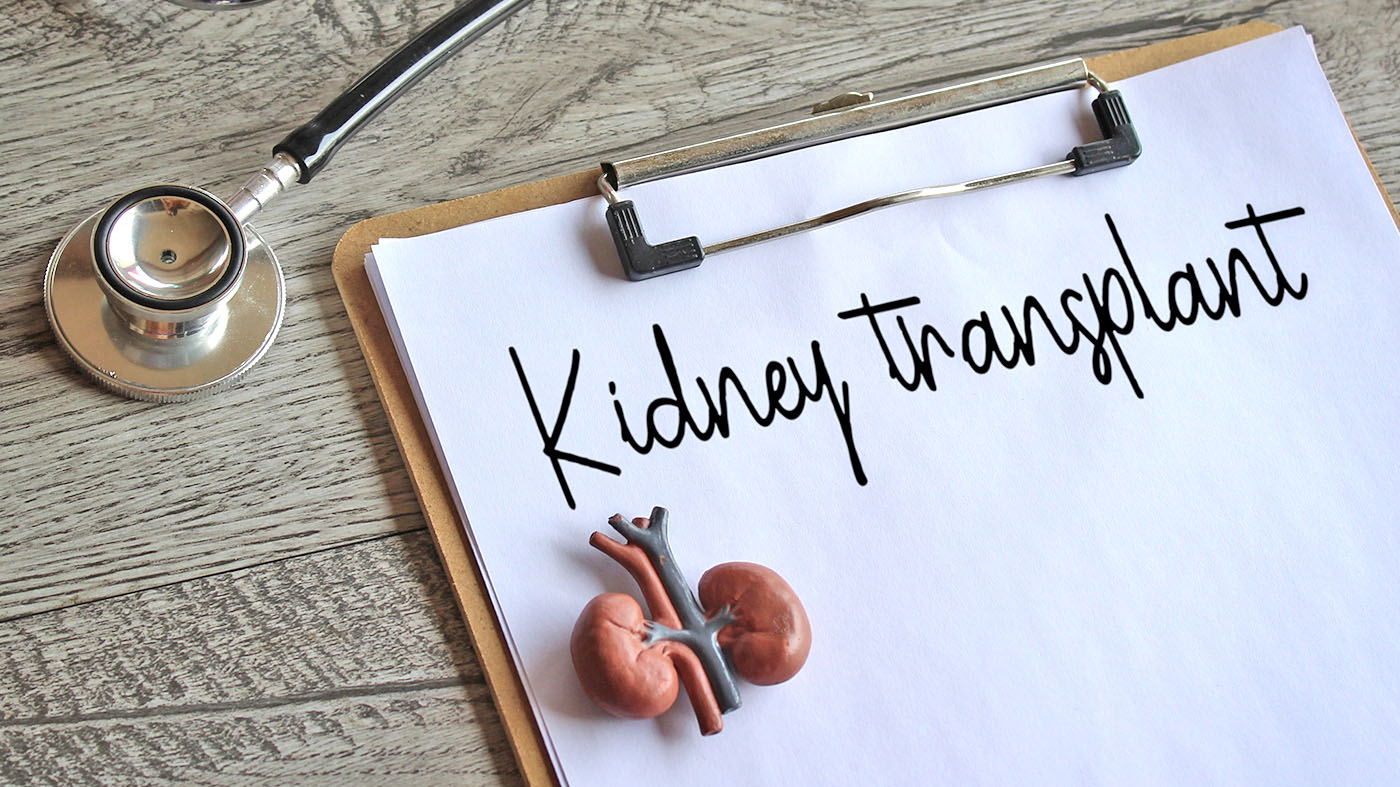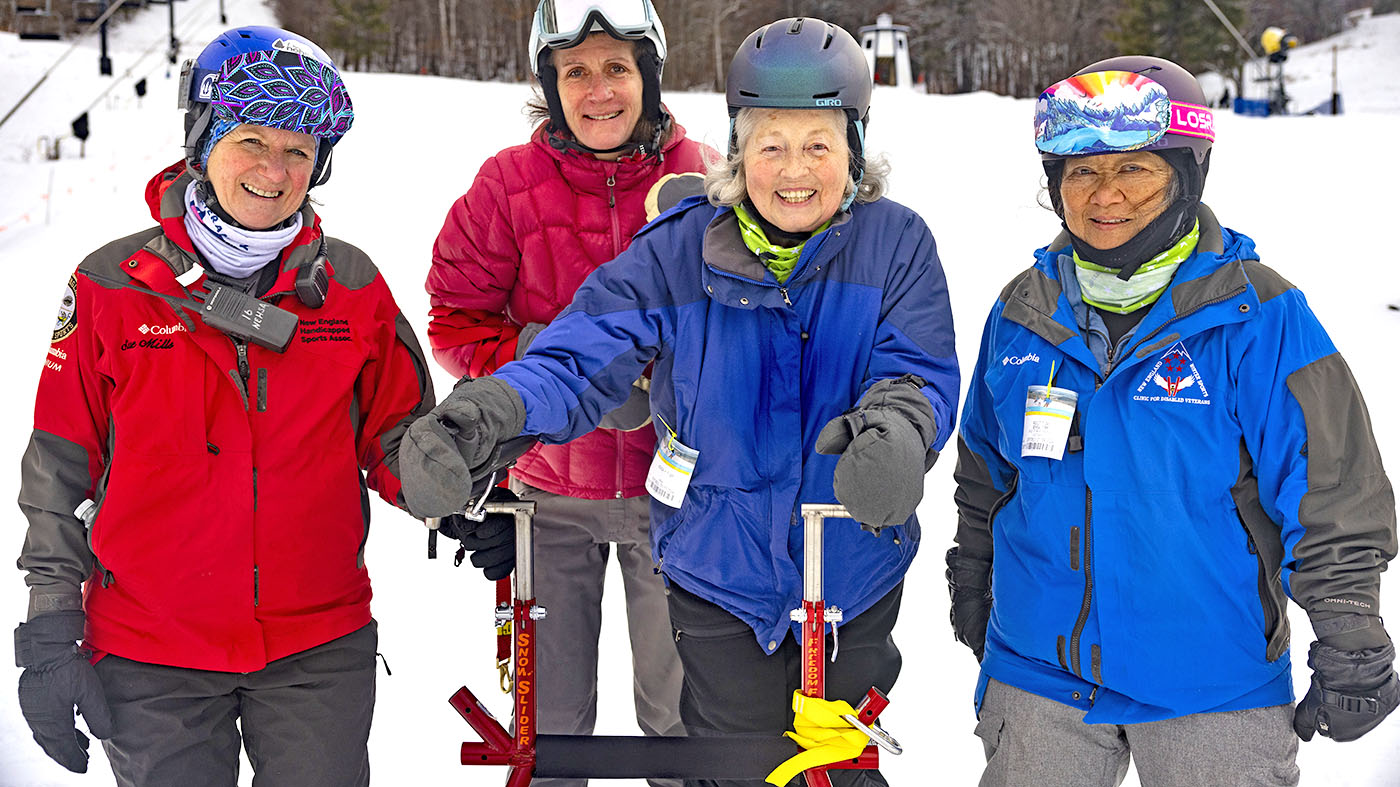Richard Felix was living in Fairbanks, Alaska, when he joined the Army at age 17. His service took him to many countries, including Germany, Korea, France and Greece. After leaving the military, Felix was ready to come full circle and returned to his home state, where his parents still lived. Housing was not a concern.
He had a successful career as a sous-chef at a popular restaurant until the coronavirus pandemic began and changed his life. When the restaurant he was working at closed, Felix suddenly found himself without a job or housing.
This predicament could have shattered anyone’s spirits, but Felix knew there were resources to help him. He just had to ask.
When Felix lost his housing, he found refuge at a temporary shelter until he was referred to the Grant and Per Diem (GPD) program by a VA Anchorage Regional Office representative.
GPD connected him with the Housing and Urban Development-VA Supportive Housing program, which sped up the housing voucher process through HUD-VASH GPD Collaborative Case Management.
HUD-VASH found him a home
Using the HUD-VASH voucher, Felix secured housing through Catholic Social Services, a GPD case management grantee, who has also helped 14 other Veterans find permanent housing.
“We are leveraging community resources to expand the ability to house Veterans on a permanent capacity,” said Erin Johnson, GPD clinical program specialist.
“GPD grantees can now assist with housing HUD-VASH-eligible Veterans through this unique and agile partnership.
Since 2020, Collaborative Case Management has expedited the use of HUD-VASH vouchers by partnering with existing GPD case management services.
GPD grantees with an existing case management grant can provide services to HUD-VASH-eligible Veterans. The program helps them obtain and sustain permanent supportive housing.
From hotel room to his own apartment in a month
Case managers can also assist Veterans with housing searches and obtaining housing placements utilizing a HUD-VASH voucher. They provide ongoing case management services for up to six months after permanent housing.
“Felix was referred to the GPD program while staying at a temporary shelter in a hotel,” said Ryan Chernikoff. Chernikoff is Felix’s GPD case manager. “From there, we started apartment shopping, and we were able to locate an apartment within a month. Everything kind of fell into place.”
Almost simultaneously with finding an apartment, Felix secured a job with local organization 99 Plus 1 Inc.
“They were looking for someone to work with people experiencing homelessness to get them situated in positive living situations,” said Felix. “We monitor them and support them by providing transportation and scheduling doctor’s appointments for them.”
Access to computer and the internet
After securing employment and a new apartment, Felix was busier than ever. It became difficult for him to meet with his case manager, especially because of the COVID-19 pandemic.
But thanks to a grant from the Bob Woodruff Foundation, Catholic Social Services was able to provide Felix with a loaned Chromebook, Chromebook training and money to cover his internet fees.
Having ready access to a computer and the internet helps Veterans maintain their social and emotional well-being, access virtual health care, attend virtual case management sessions and explore educational and employment opportunities.
Now Felix has rewarding employment and permanent housing. He can enjoy being back in the close-knit community of Anchorage.
“We have a lot of resources in Anchorage, but it is partially on us to take advantage of those opportunities,” he said. “I would encourage other Veterans to get involved with VA and seek resources.”
More information
- Read more about VA’s Grant and Per Diem program to determine if your agency is eligible to receive a grant for supportive services or housing.
- Veterans who are homeless or at risk of homelessness should contact the National Call Center for Homeless Veterans. The telephone number is 877-4AID-VET (877-424-3838).
- Visit the VA Homeless Programs website to learn about employment initiatives and other programs for Veterans exiting homelessness.
To read more blogs on HUD-VASH, visit https://news.va.gov/?s=HUD-VASH.
Topics in this story
More Stories
Army Veteran Gregory Zielsdorf recounts his experience on the kidney donor list and through the transplant surgery.
Spinal cord stimulation implantation helps Veterans suffering from chronic pain improve their quality of life without narcotics.
After Addison’s Disease and lumbar spine surgery, nurse Veteran Gayle Smith re-learned how to ski. “You have more courage than you think.”






